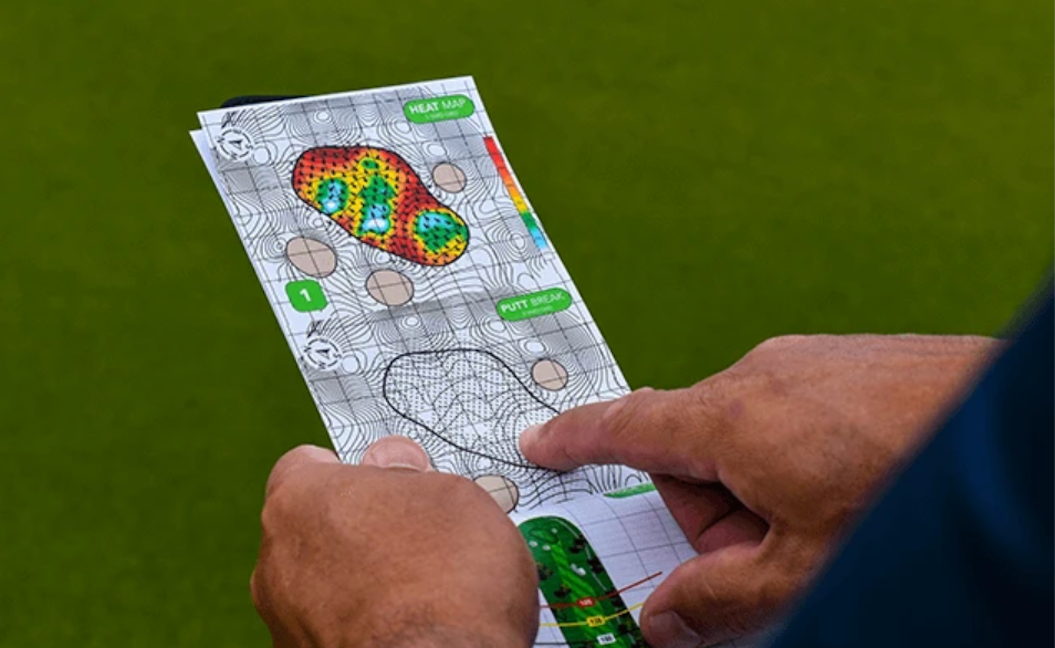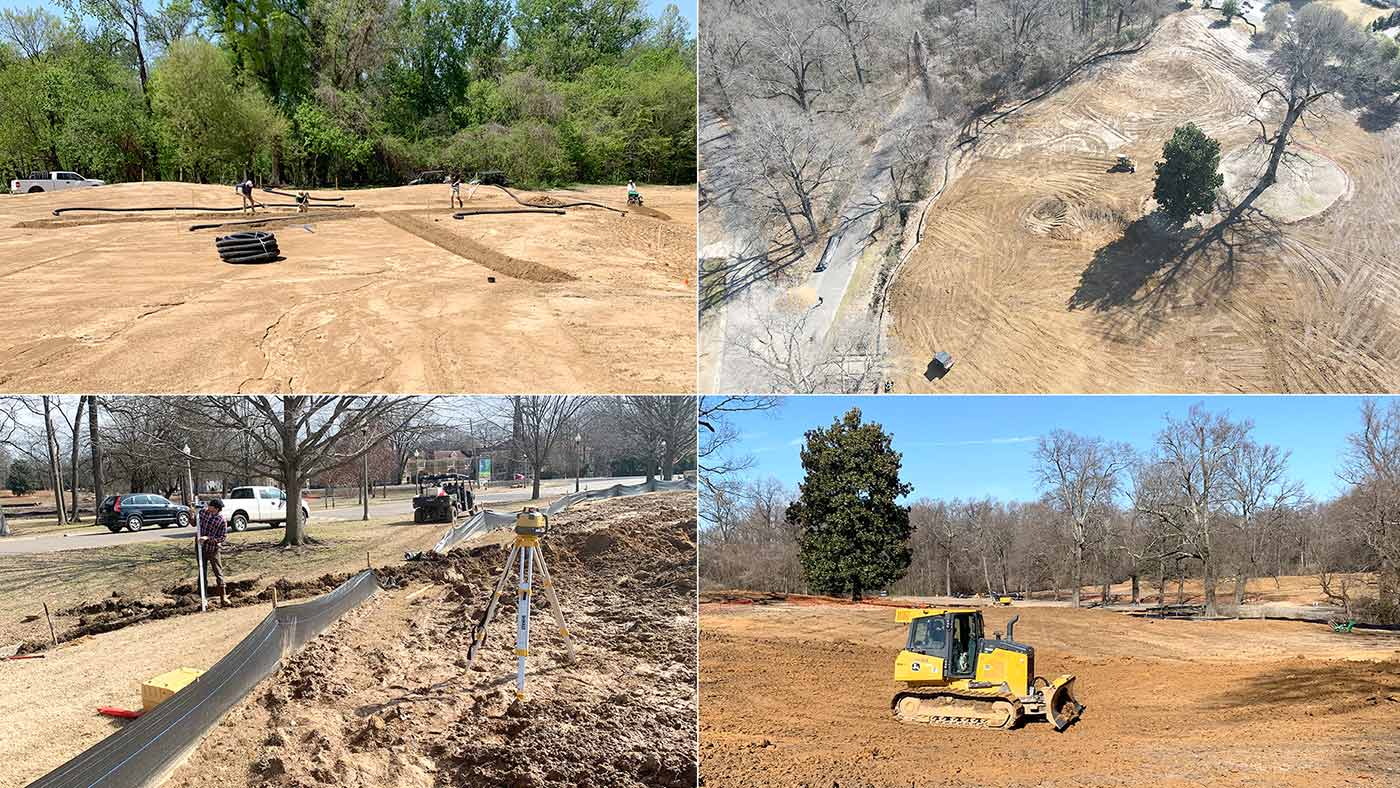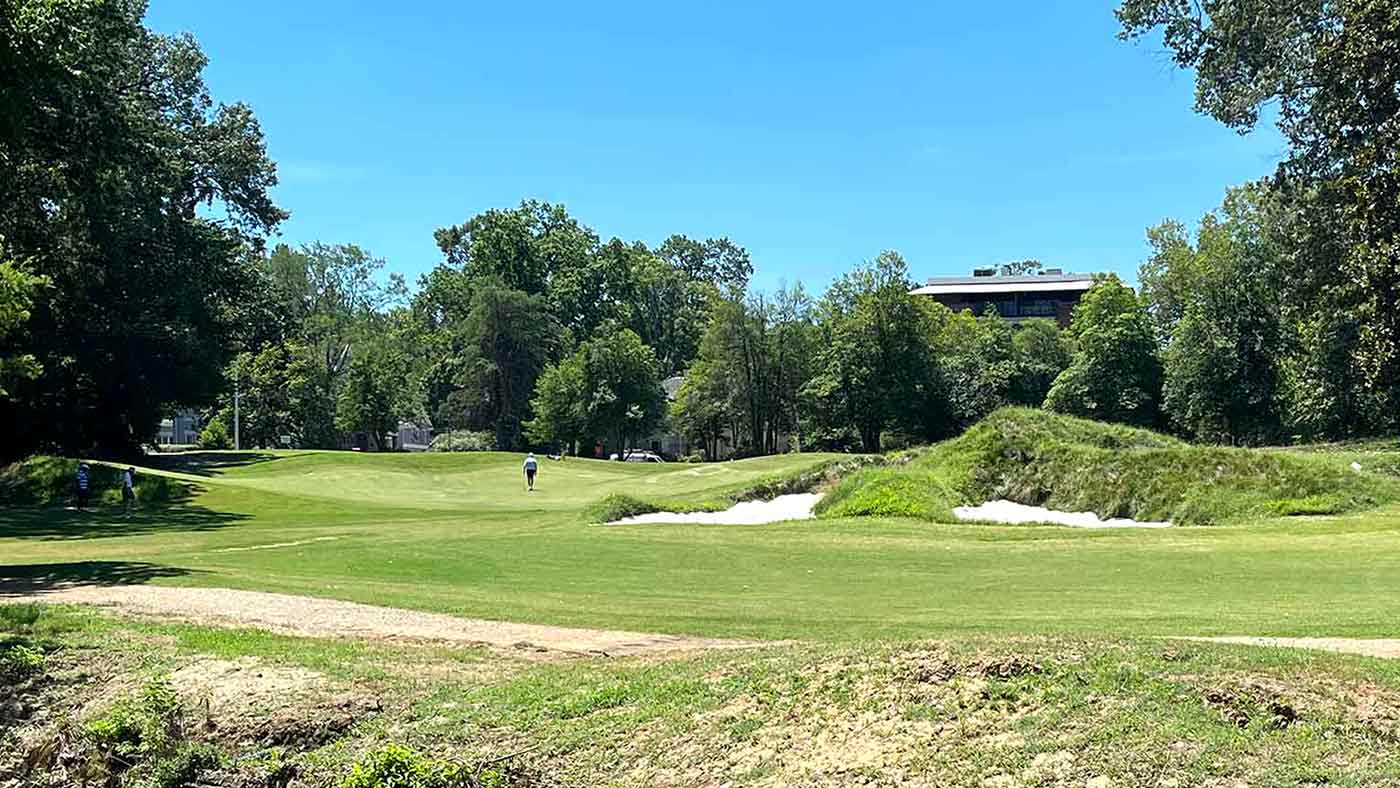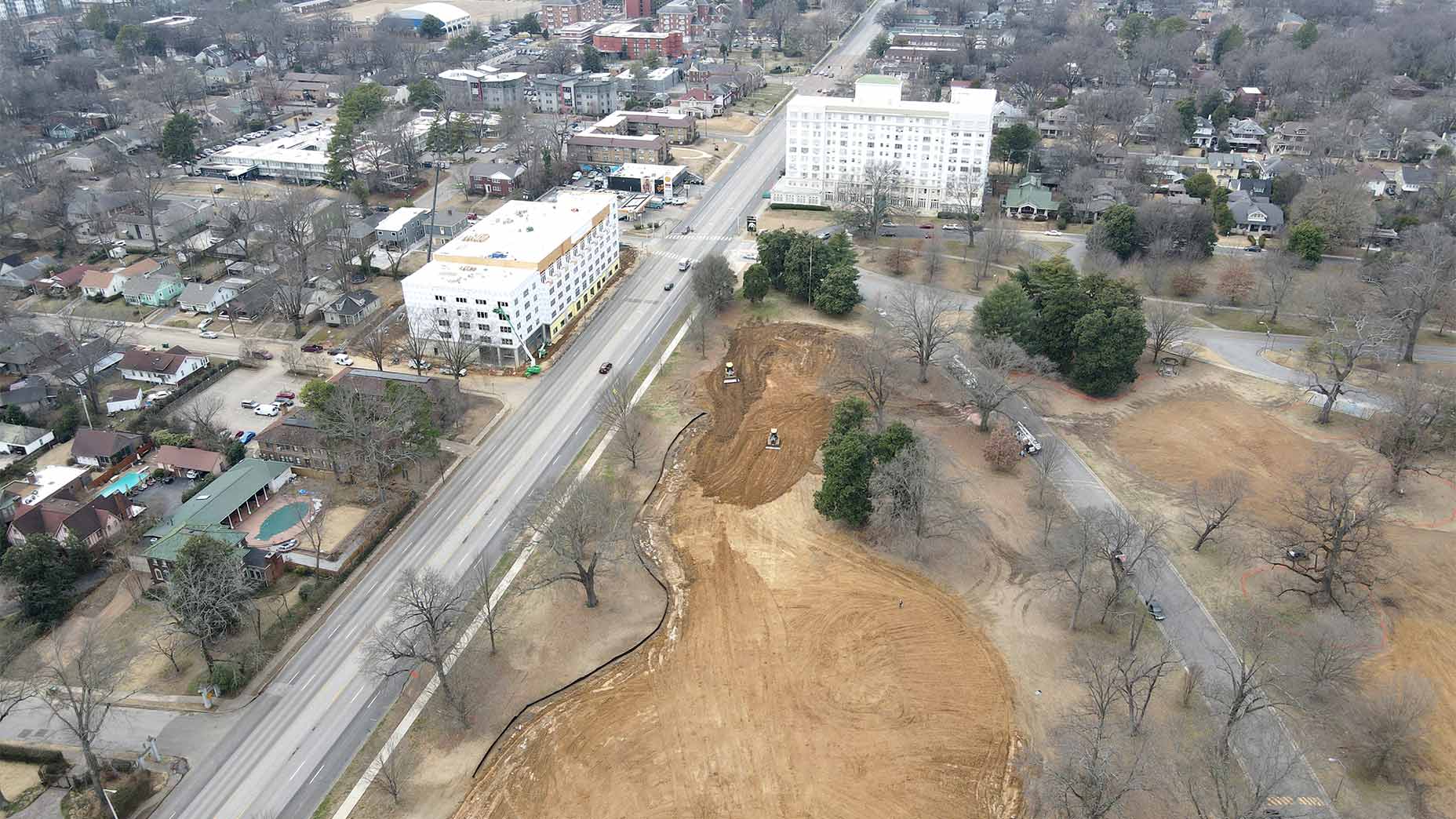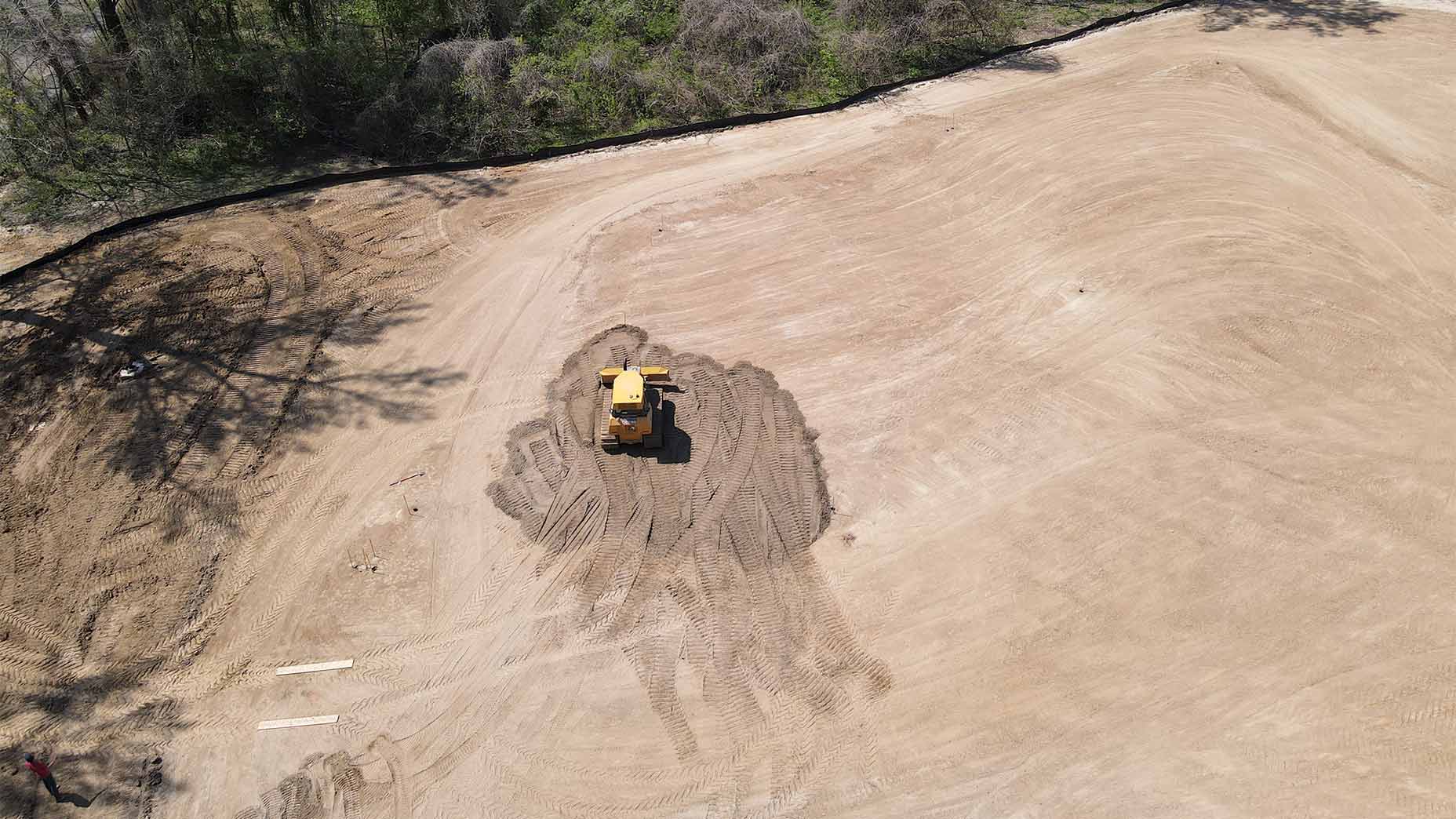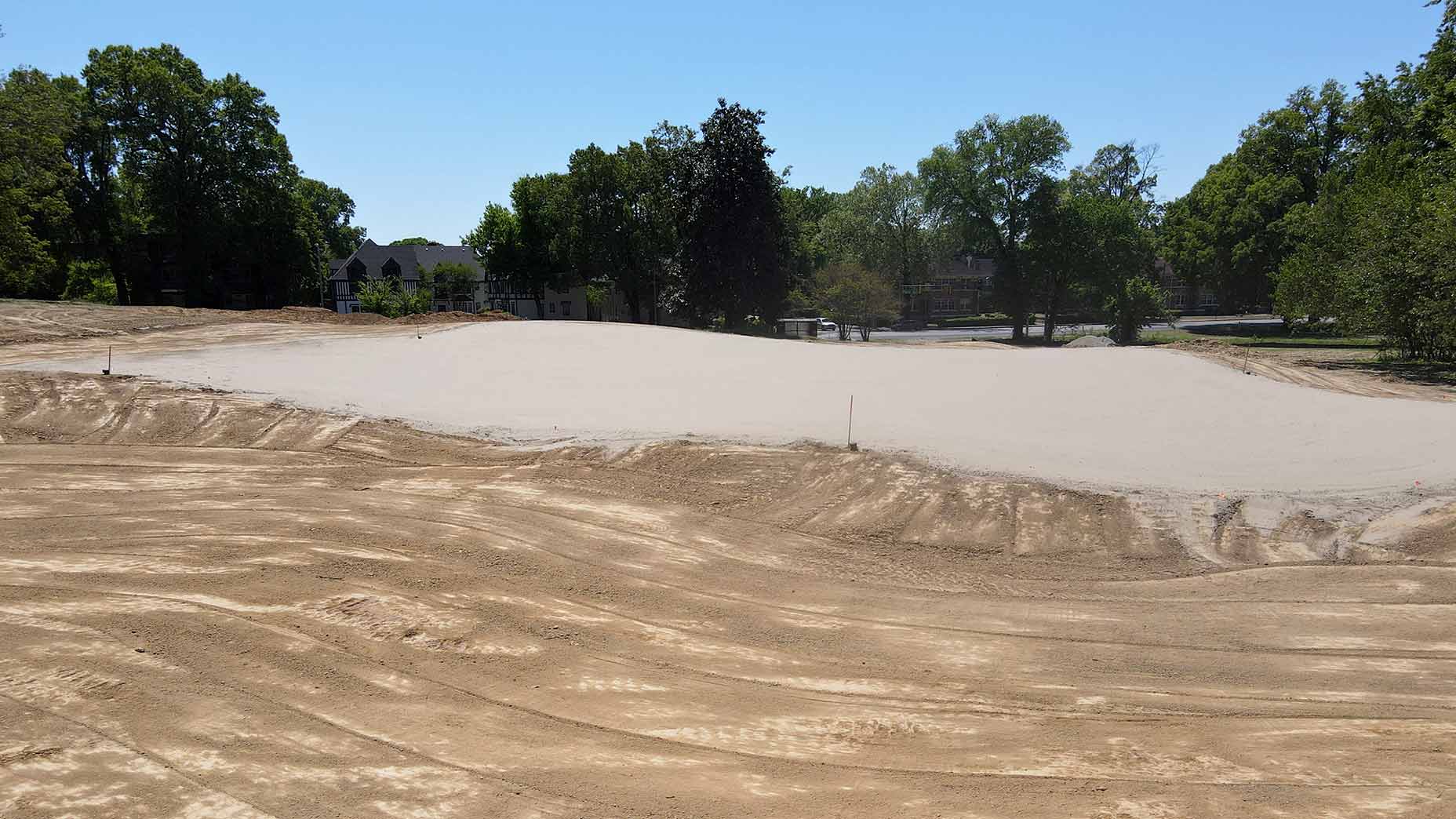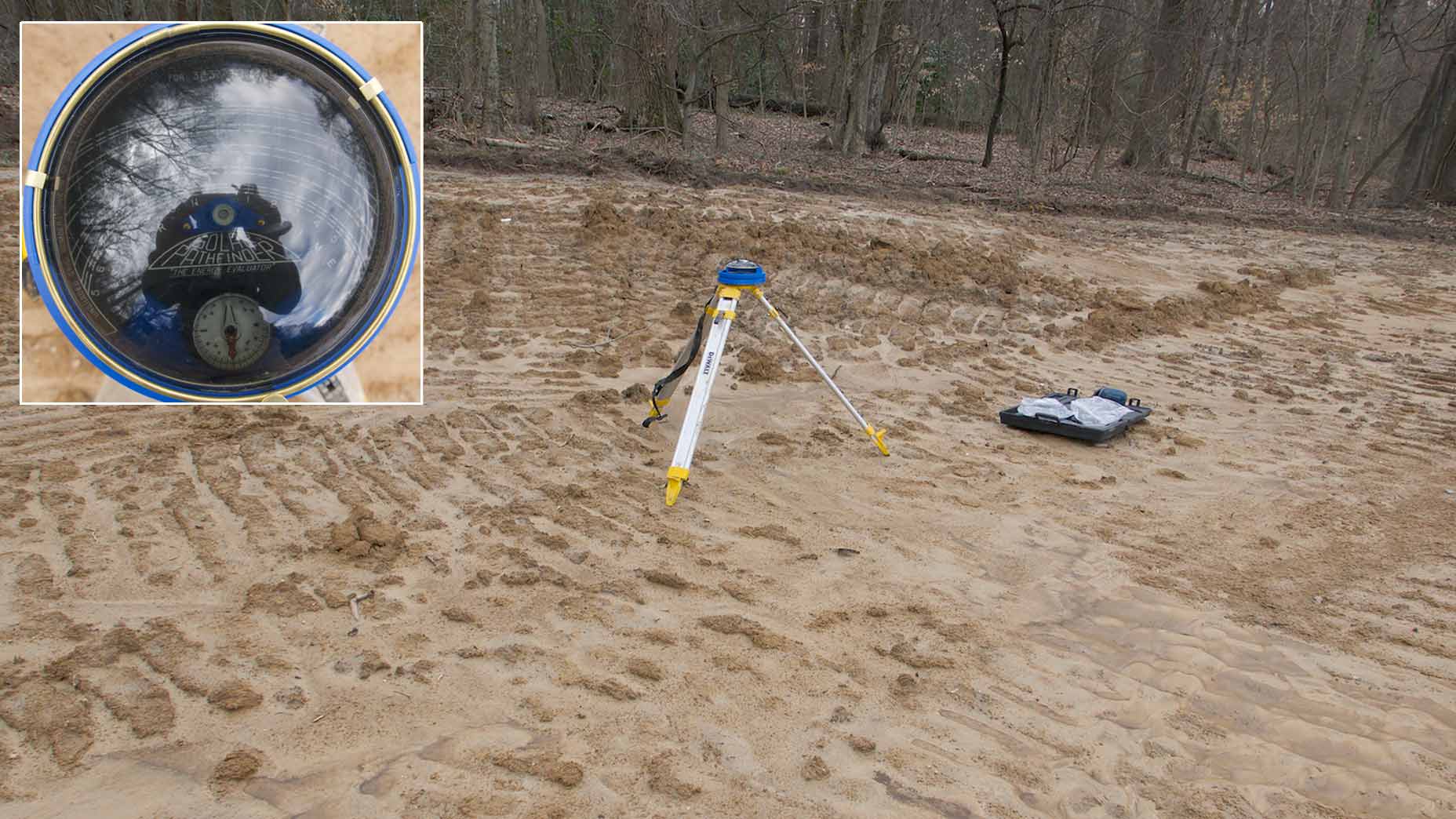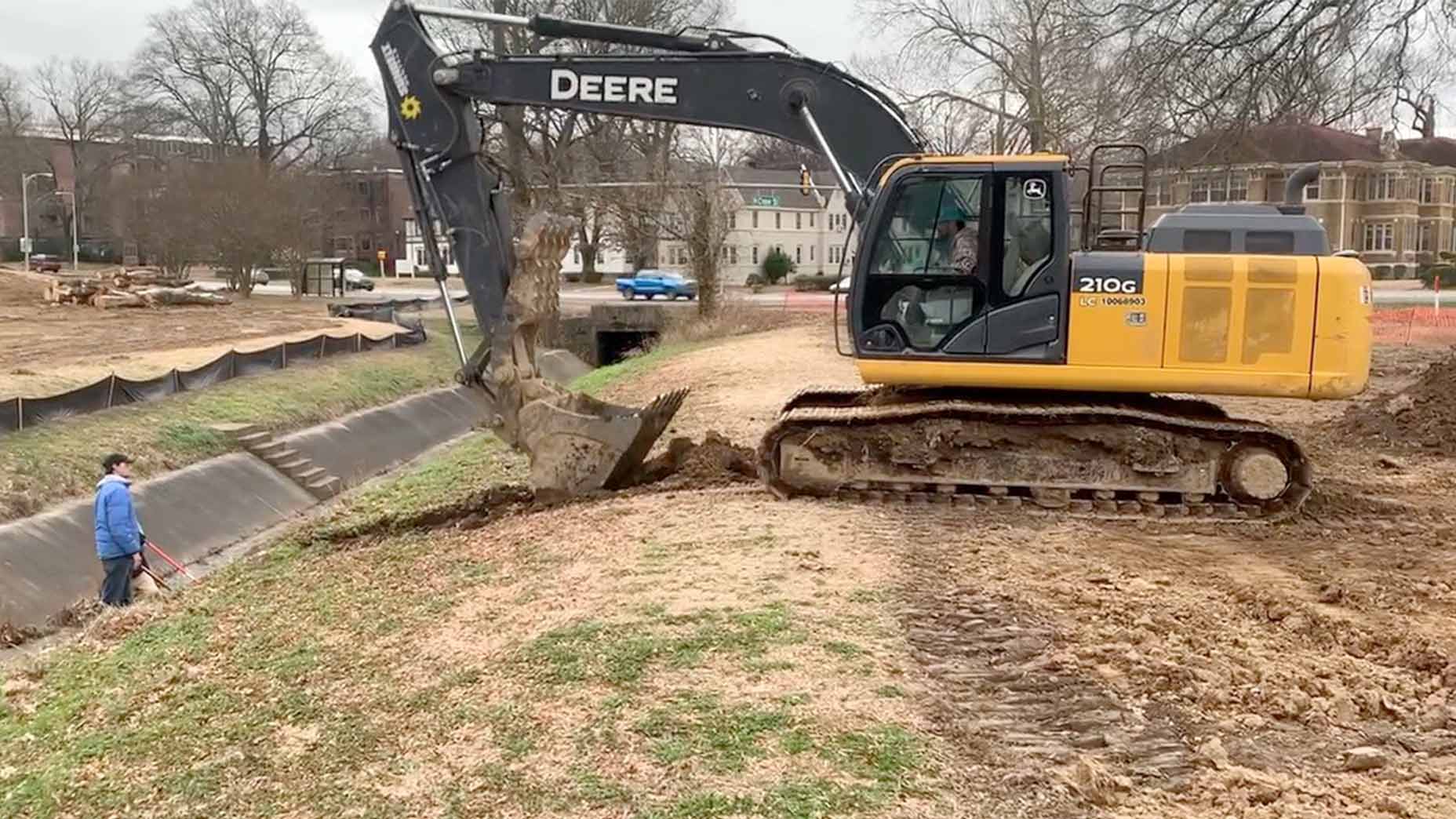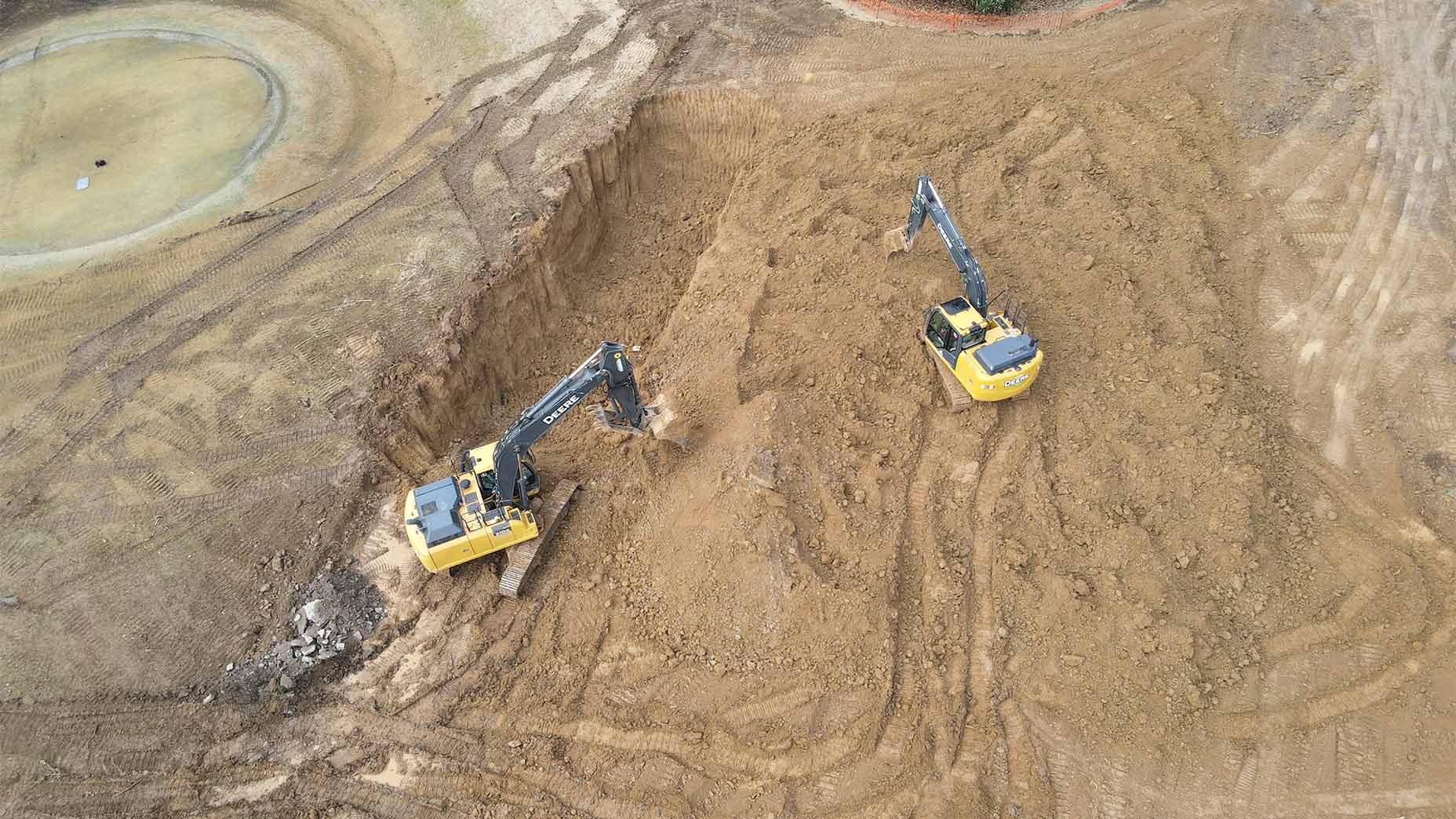Ed note: GOLF contributor and architecture nut Desi Isaacson cut his design teeth as an intern for King-Collins Golf on their redesign of Overton Park, a nine-hole muni in Memphis, Tenn. How are courses actually built? What moves are made behind the scenes? Here, in Dirt Diaries, we’ll pull back the curtain on how design decisions come to life. Here, to recap the summer that was, is his final piece.
Previous installments: How drainage pipes are installed | What’s a bury pit? | The genius device that helps position greens | When building golf courses, some changes must be made on the fly | The 9 steps to finishing a new green | 6 things you learn building a golf course in the middle of the city
1. I learned to never again be fooled by greenie tricks
Being the rookie comes with its fair number of tricks, and good-natured ribbing. It probably didn’t help that I was, “that writer kid.” Some specifics I learned along the way is to not look down if someone yells, “You dropped your pocket!” That’s not a real thing you can do though everyone falls for it the first time. There is also no such thing as a pipe-stretcher and there is no need for you to find the boss to get it from him.
2. I learned how to get along (and live with) a crew of interesting personalities
The crew at Overton Park came from a wide variety of backgrounds and experiences (to say the least). And many of us lived together in one house. You learn a lot about people working and living together. We had an array of characters I won’t soon forget. I’d like to thank Bruce and Lucas (who likes to go as Pops) for putting up with me and not picking on me too much. I know they could have done a lot worse.
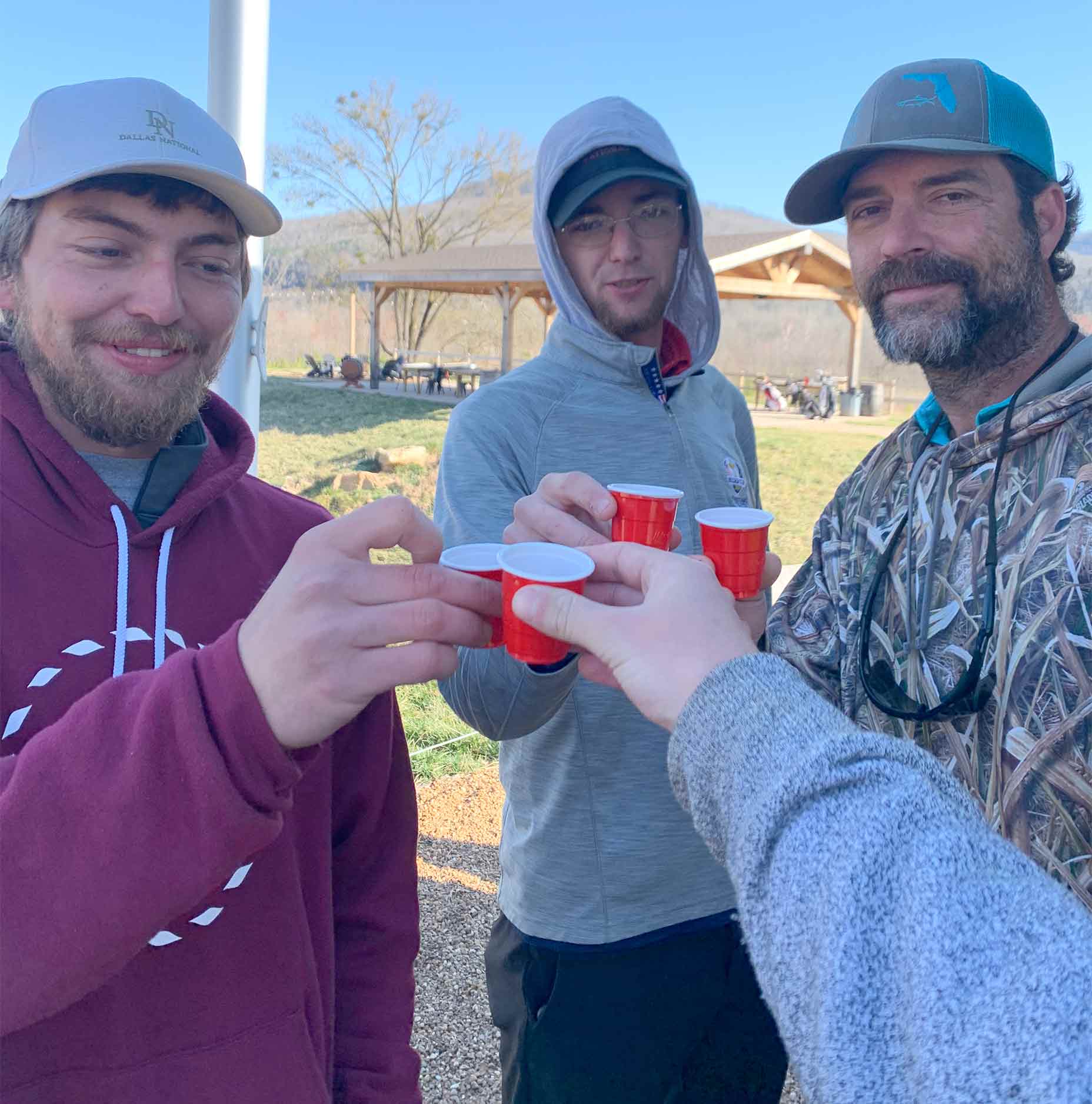
3. I learned how to get a bird out of my room after Lucas caught one and snuck it in
It’s a long story.
4. I (re)learned that people have differing opinions of golf and its importance
— One woman walking by with a dog said, “Please tell me you’re tearing up the golf course and turning the whole thing into a dog park?” She was disappointed with our answer.
— One lady asked what all the construction was about. I told her we were re-designing the golf course. She responded, “It was a golf course before?”
— One man asked if the greens were staying in place. I told him they’d be two to three times larger. He responded, “Can you make the hole two to three times larger too?” I thought that was pretty clever.
5. I learned how to wake up early and go to sleep the first chance I get
When my alarm sounded each morning at 6 a.m., I promise you, I laid in bed and considered every life choice I made that led me to that moment. Every morning it was the same. Why did I sign up for this? Why did I think this would be interesting or fun? Is any of this worth it? Am I truly prepared to spend another day in very cold or very hot temperatures outside, working my butt off? Is my body (which still hurts from the day before) going to be able to handle all of this for another day?
To be clear, I’m happy I did this once — but I’ll never do it again. These guys are saints.
6. I learned big changes don’t happen overnight
Almost every task took longer than I thought and was more labor intensive or difficult than I expected. At the beginning I couldn’t see how the project would take so many months. There seemed to be very few steps. And yet time after time things would take longer, there would be a delay, or a machine would stop working and we had to wait on the repairman. There was always one more variable than you could’ve thought through. I’m not saying we were slow; I just thought everything would move faster. Rookie mistake.

7. I learned not everyone knows every detail of the plan
It was a hard realization that I wouldn’t be clued into each shaper/architect conversation. I didn’t like that ideas were being exchanged and plans made when I wasn’t around. I always wanted to know how things were coming together and how they were changing. But there are too many people and there is too much to do. We can’t all stop and chat three times a day. Not everything can crawl to a halt whenever a conversation about a tee box starts up. And so I learned to live with limited information.
8. I learned to hate rain
I had never worked a weather-dependent job before. I won’t lie, there were plenty of days I woke up to rain and was overjoyed I might get to stay in bed. Though eventually I learned that rain wouldn’t just prevent work while it was coming down but could halt progress for days. It’s hard to shape mud. I can see how just a bit of bad weather can throw a whole project off and delay everything. A delivery of sand needs to be rescheduled because the dirt won’t be dry in time, but they can’t come until the next week, on and on. Things would be better if we built golf courses inside.
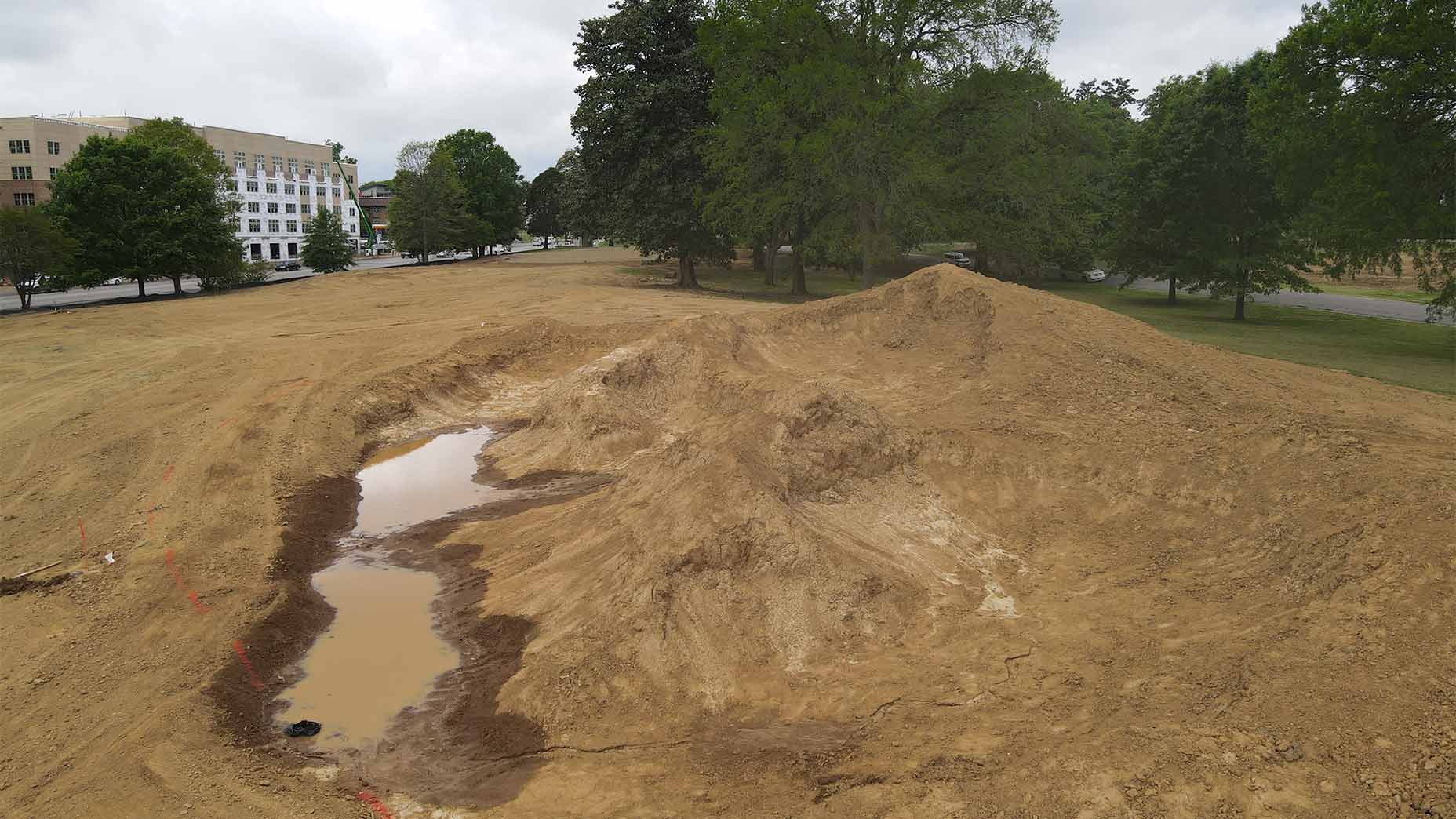
9. I learned slackers on projects often try to sneak in naps while lying in bunkers
I never tried this (I swear!) and I didn’t catch anyone else either. But apparently this happens, at least sometimes. There were some days I thought about it.
10. I learned how amazing the people are who care about Overton Park
Some incredible people give a lot of time and energy every day to make Overton Park an enjoyable place for the people of Memphis. Anyone who ends up playing a round on the 9 holes we built owes a debt of gratitude to Parks and Melanie. They sat through countless meetings, showed up to check on progress, brought us donuts (very important), and made us all feel like family. Smaller projects like this don’t happen without people whose only motivation is the betterment of their community.
11. I learned lots of skills not really connected to building a golf course
I spent a lot of time putting up and repairing silt fence. Some days it felt as if our silt fence could run the full length of Beale Street five times over. I also spent days just cleaning roads after storms, rebuilding walking paths, oiling and refueling machines and dozens of other random little jobs. I learned how to use a Lasor level, which had always fascinated me. Maybe someday some of this will come in handy.
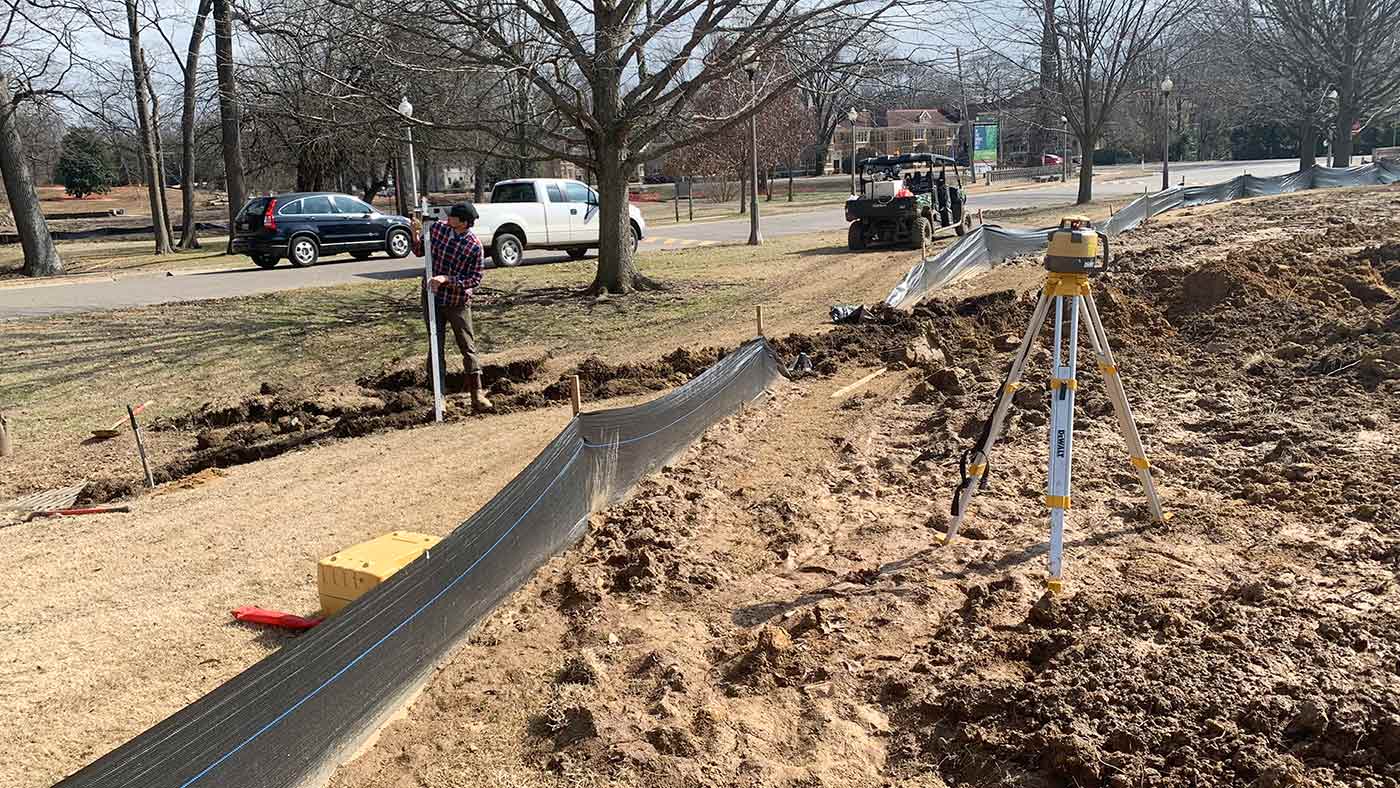
12. I learned how to drive and operate a skid steer and drive a tractor
I’m no Louis Oosthuizen, but I picked up some tractor skills. I never imagined I would spend this much time on tractors and skid steers in my life.
13. I learned that operating a bulldozer or excavator is hard (really hard)
I know I should have expected this. And to some extent I did, but operating heavy machinery, especially for something as precise as building a golf course, is not something you can pick up quickly. The controls aren’t nearly as intuitive as I expected, and so much of it is done by feel. You can’t see what you are doing on a bulldozer. “You have to feel it with your ass,” I was continuously told. I got it in theory more than I ever did in practice. Being able to cut slopes to within a single degree is more impressive than I ever could have imagined.
14. I learned courses can turn out better when it’s a collaboration of likeminded people getting their hands dirty
While he was on site, I learned a lot from shaper Trevor Dormer. I can see how he and King-Collins made a good match, as they had very similar thoughts about how a golf course should be built. Rob and Tad will take a good idea from anywhere, as long as the person is there on the ground with them. Dormer told me, “Creativity really comes when your boots are in the mud.”
15. I learned that the enthusiasm from those who love doing this never wanes
The vigor and excitement Rob and Tad would bring whenever on site lifted everyone’s mood. Even as the project neared completion, the spark never left their eyes. I’ve never seen anyone as excited as Rob as we put the finishing touches on greens minutes before they were sprigged. We might have been building in a public park in Memphis, but Rob was comparing the first green to both Shinnecock Hills and a Salvador Dalí painting. He was amped; you can’t help but feel it too.
16. I learned that great architects will take great ideas from anywhere (even the lowly interns)
“What do you think?” Rob repeatedly asked another intern, Zane Ellis, and myself, as we finished greens or bunkers or walked fairways early in the process. Zane usually had better formed ideas or opinions. I was nervous and felt a distinct lack of experience and expertise. But he didn’t do this just to make us feel better (well maybe that was part of it). But if Zane or — on the rare occasion — I had a good idea he would jump all over it. No one will ever notice our touches on the course, but if you find yourself in the bunker on the right side of 8 fairway, that might be Zane’s fault. And if you just miss right of the 8th green, that might be my fault.
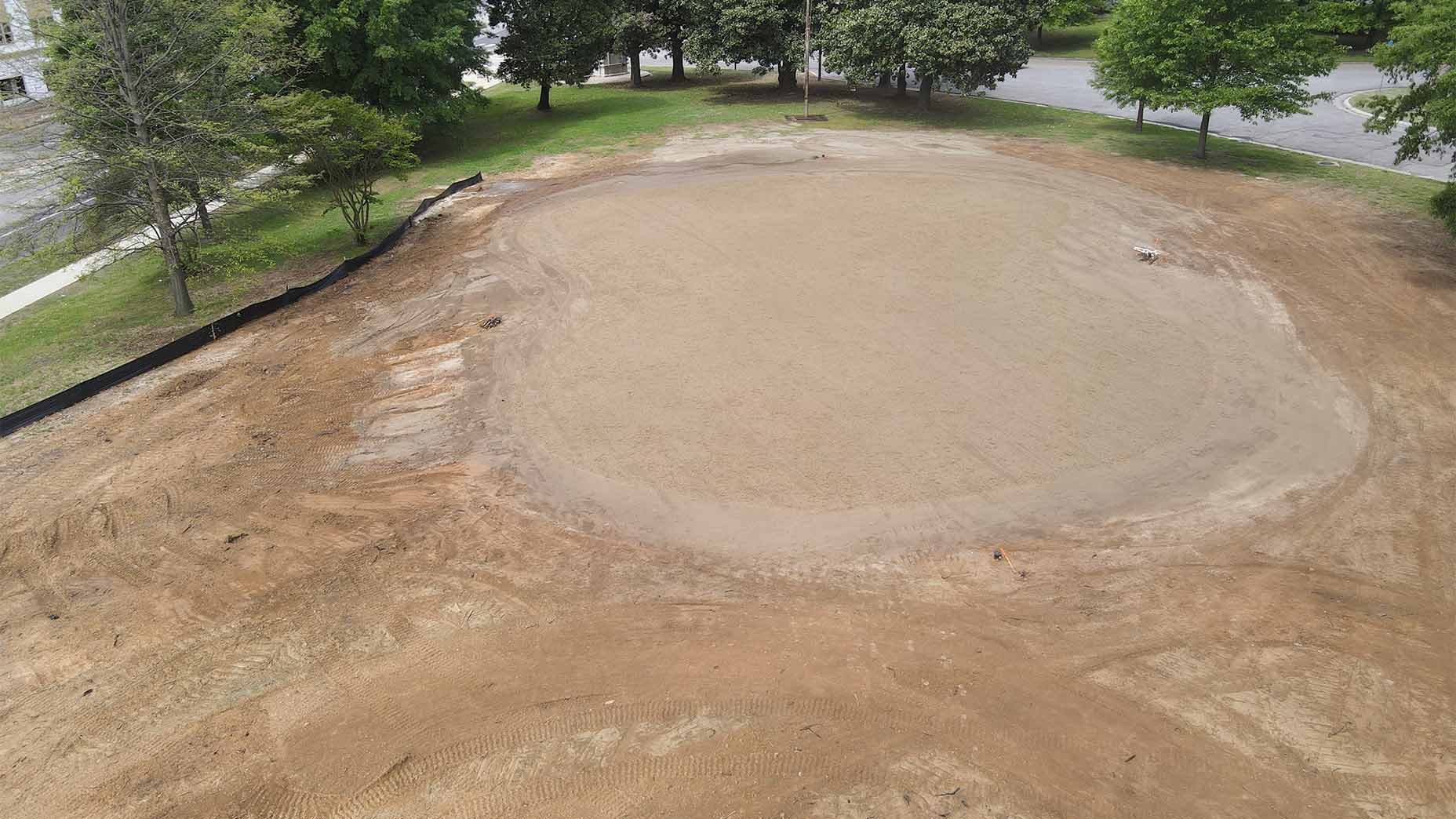
17. I learned several valuable lessons from the site manager (my boss)
— Some of us on site thought we were a bit smarter than we are (I’m talking about myself, okay?!). And so, several times my boss had to put me in my place.
— Whenever we were trying to figure out where to put in drainage or silt fence, my boss would say, “Remember, s— runs downhill.” If I didn’t know this before, I will never forget it now.
— Whenever it was taking anyone (usually me) a while to figure something out or get it right, my boss would walk over and calmly say, “I used to be a doctor. But I lost all my patience.” I got used to it, but the first time this really rattled me.
18. I learned that great golf course design should and can be accessible to everyone
We built Overton Park on a municipal budget. We didn’t have unlimited funds and that meant we went about things differently. Sometimes the more senior crew members would tell me, “At a real golf course, this would be done this way.” This always irked me a bit. It hurt my soul.
The problem with this phrase is that it diminishes not only Overton Park, but the form in which thousands of Americans enjoy the game. It’s no secret that golf has an exclusivity problem. The myth that golf is for the elite and you need to be rich or well-connected to play good golf courses with strong architectural features is old and tired.
For my money, Overton Park is more real than all the private courses these people will never get to see. Those places will continue to be nothing more than rumors, photos online, figments of their imagination. Overton Park will be a real place right around the corner that they can drive to and experience wildly cool holes. Generations of children have learned to love the game of golf here, and we are simply trying to improve that experience for generations to come.
No one is arguing that the budget to build and maintain munis is the same as exclusive private spots. But price point doesn’t tell the whole story.
Every time I came across an avid Memphis golfer who learned I was helping re-design Overton Park, they were quick to share it was where they learned the game, often where they played in their first tournament and almost always where they fell in love with the game. This place is the epitome of what golf can be. For everyone.
